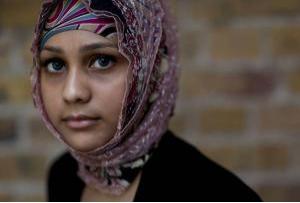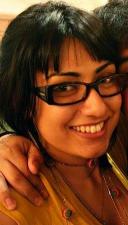
How can mainstream young Muslim students get heard when fundamentalists often have a stranglehold on their groups and societies? Saniya Gour, 17, an east London A-level student, has struggled. "Everyone where I live is so extreme. There are very few who are not hardline about things. And, as a girl, they don't want to hear what you have to say. I go to Leyton Sixth Form College and when I asked one of the heads of Isoc (the Islamic Society) if I could speak, he said no. They don't even like me talking to guys. They say: 'You're wearing a headscarf, you shouldn't be talking to boys'."
However, Saniya and other young Muslims now have a national forum where they can learn leadership skills and how to speak up. The Young Muslim Leadership Network (YMLN), funded by the Government as part of its controversial Prevent programme designed to stop violent extremism, is working hard to make its mark. It needs to. Early soundings by some of its two dozen members show that it is up against powerful forces.
The network was founded last year for young people aged 16 to 21, and has three groups – two in London and one in Birmingham. The central London group is researching university Islamic societies, and members have been shocked at what they have found. Hazura Bazeer, 18, a member of the central London branch of the YMLN, is in her final year at Coombe Girls' School in New Malden, Surrey, and has a place to study medicine at King's College, London. She says: "In one case that we heard of, a girl was slapped in the face for not wearing a headscarf, and, in one society, women were not allowed to speak and had to hold up their questions in writing."
On many campuses, societies are run by extremists, and moderate Muslim students avoid them. Such students also know that these societies are now closely monitored by the authorities – even more so after the recent University College London-educated alleged "underpants bomber" – and worry about the consequences of membership.
She points out that a lot of societies don't have any election process. "There is no democracy," she claims. "Posts are just handed on, so it is all just a vicious circle."
Her group is sending out a questionnaire to students and consulting on what changes people would like to see. It is also planning to visit more open Isocs, such as those at Oxford and Cambridge, in order to produce a code of good practice. "These societies have a lot of potential and ought to be a really cool part of university life."
 United Nations Development Fund for Women (UNIFEM)’s Goodwill Ambassador and Say NO Spokesperson Nicole Kidman raised more than US$175,000 today for programmes to address violence against women and women’s empowerment in China. Attended by more than 200 guests, the charity fundraiser took place during her first visit to Hong Kong, and was organized in cooperation with the luxury watch manufacturer OMEGA. The event also featured a private concert by Nicole Kidman’s husband, Grammy Award–winning singer Keith Urban.
United Nations Development Fund for Women (UNIFEM)’s Goodwill Ambassador and Say NO Spokesperson Nicole Kidman raised more than US$175,000 today for programmes to address violence against women and women’s empowerment in China. Attended by more than 200 guests, the charity fundraiser took place during her first visit to Hong Kong, and was organized in cooperation with the luxury watch manufacturer OMEGA. The event also featured a private concert by Nicole Kidman’s husband, Grammy Award–winning singer Keith Urban. Uzma Atcha, 21 (pictured at left), a Pakistani living in Dubai, and Esra’a Al Shafei, 23, a Bahraini, joined forces to launch Mideast Tunes, a platform for musicians in the region.
Uzma Atcha, 21 (pictured at left), a Pakistani living in Dubai, and Esra’a Al Shafei, 23, a Bahraini, joined forces to launch Mideast Tunes, a platform for musicians in the region.  THIS weekend in Rome a married teacher will become Italy's first woman priest when she is ordained in a church not far from the Vatican.
THIS weekend in Rome a married teacher will become Italy's first woman priest when she is ordained in a church not far from the Vatican. How can mainstream young Muslim students get heard when fundamentalists often have a stranglehold on their groups and societies? Saniya Gour, 17, an east London A-level student, has struggled. "Everyone where I live is so extreme. There are very few who are not hardline about things. And, as a girl, they don't want to hear what you have to say. I go to Leyton Sixth Form College and when I asked one of the heads of Isoc (the Islamic Society) if I could speak, he said no. They don't even like me talking to guys. They say: 'You're wearing a headscarf, you shouldn't be talking to boys'."
How can mainstream young Muslim students get heard when fundamentalists often have a stranglehold on their groups and societies? Saniya Gour, 17, an east London A-level student, has struggled. "Everyone where I live is so extreme. There are very few who are not hardline about things. And, as a girl, they don't want to hear what you have to say. I go to Leyton Sixth Form College and when I asked one of the heads of Isoc (the Islamic Society) if I could speak, he said no. They don't even like me talking to guys. They say: 'You're wearing a headscarf, you shouldn't be talking to boys'."